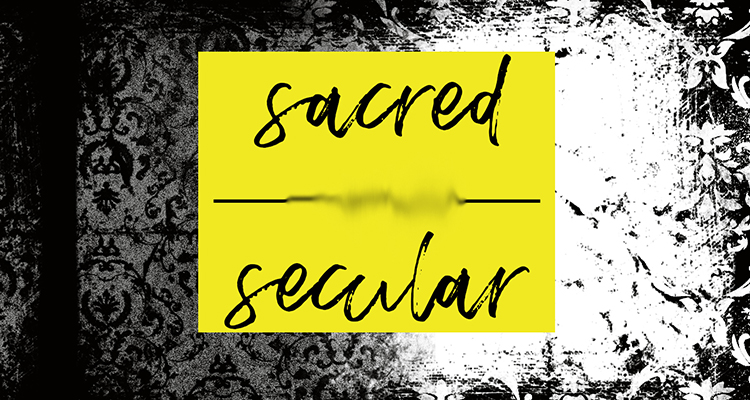by Dan Haseltine
I know, I know… we are still having this conversation. I would let it go if I thought that the world would be a more peaceful place without it. I also recognize this is a bit of a strange forum for this conversation because the very name of this media outlet conjures a distinction that I have long spoken against. Now, I am happy to temper the accusation as less of a moment to point fingers or pass blame. At this point in my own narrative as an artist, I don’t have quite the angry spark I once had, and now it is more of a knowing empathy and compassion for people stuck with a misreading of the culture, such that it is and has been. I only bring this up because I had a conversation just mere days ago when someone asked me if I thought Christian music was good for the world.
The first image that triggered in my head was that scene from an episode of “King of the Hill,” where Hank, after experiencing a Christian music band, says, “Don’t they know they aren’t making Christianity better, they are just making music worse?” And then the second was a recent headline exploiting the perception that Avril Lavigne’s resurgence into the music world was with a “worship song!” And then to top it off… (yes, my mind fires off quickly in those situations) I remembered a Facebook post of some Christian music industry person celebrating that Lauren Daigle had beaten out a bunch of “secular” artists for the top Billboard spot on the charts.
Yes, the Energizer bunny of contemporary Christian cultural distinctions keeps going and going. After a quick pause from all the images and articles and arguments snapping into my brain, I started the slow train up and began to form an answer to the question I was asked. The short, and decidedly thoughtless answer to the question was a resounding, “uh…no.” But that really doesn’t feel very satisfying, nor does it care well for the masses who have lived the long lie on one side of the sacred/secular line or on the other.
The two main reasons I don’t subscribe to the ideology that music can be defined as Christian or secular by way of the terms our common church culture has loosely established is because the line has been drawn in the wrong place. It is, to use a controversial political term, musical gerrymandering. The Christian music elders established a line that somehow favored their ideology and perspective above another and allowed them to steer clear of the things they were afraid of, or the challenges and tensions they didn’t want to face with regard to morality and human experiences.
How do we keep from having to unpack sexual experiences in the church? We just make the topic off limits. How do we handle the topic of addiction or infidelity? We just make those topics unsafe for little ears and thus inappropriate for the general Christian artist working in the bounds set forth by the elders. The problem is that the truer line for what is Christian and what is secular demolishes the well-wrought paradigm. In our double-mindedness, we both believe that God hath created the entire Universe and therefore there is not a single secular molecule in it, and we also believe that a song or an artist can be either Christian or secular. Only one of those beliefs can exist at a time.
Another approach is to say that God is the author of all truth, and therefore the line or what is sacred must include all expressions of art that communicate truthfully. I might choose the shockingly intimate and truthful song Bruce Springsteen included on his Devils & Dust album where he describes an encounter with a prostitute. It may not be topically comfortable, but it is true and it does present a true picture of the human condition. Is it a Christian song? Well…. yes, it is, unless we want to continue to argue that there is some other ingredient which makes some thing sacred or secular.
When we make the distinction that artistic expressions are compartmentalized into categories like Christian or not, and we celebrate the artists that somehow fit into our particular camp, we begin to establish untrue perceptions of people, we create hierarchical frameworks for what is good and what is not, and ultimately we set boundaries and perpetuate an, “us vs. them” ideology in a world where the reality is that we are all sinners in need of a gospel. Perhaps the better question than, “is it Christian or not?” is, “Is it telling the truth or not?” Happy listening.

 Listen Live
Listen Live
Leave a Reply
You must be logged in to post a comment.